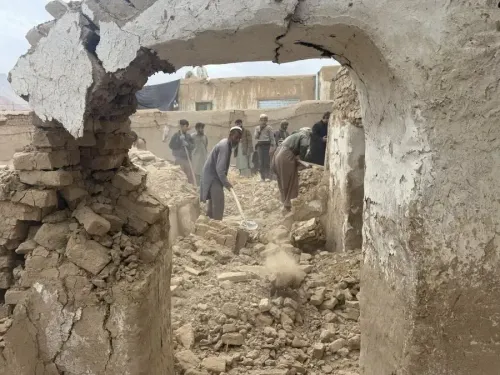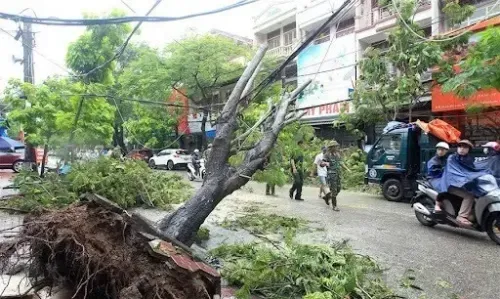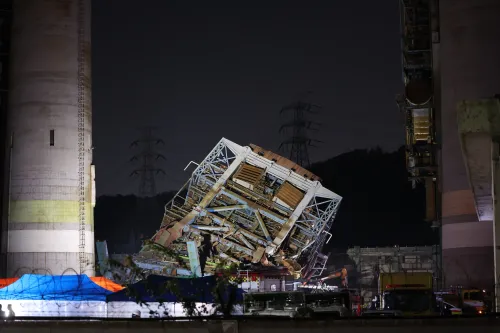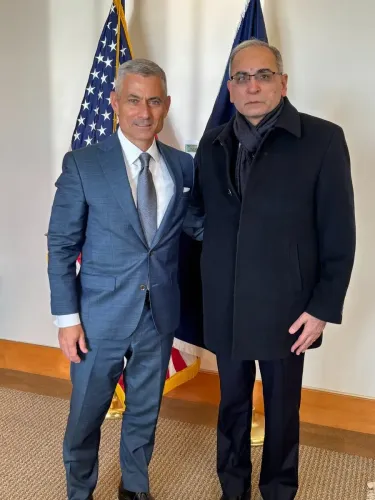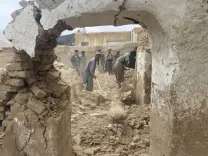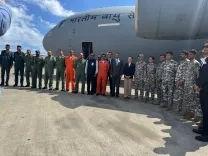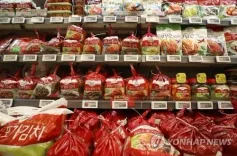Did Iran's Supreme Leader Just Call Trump's Peace Claims a Lie?
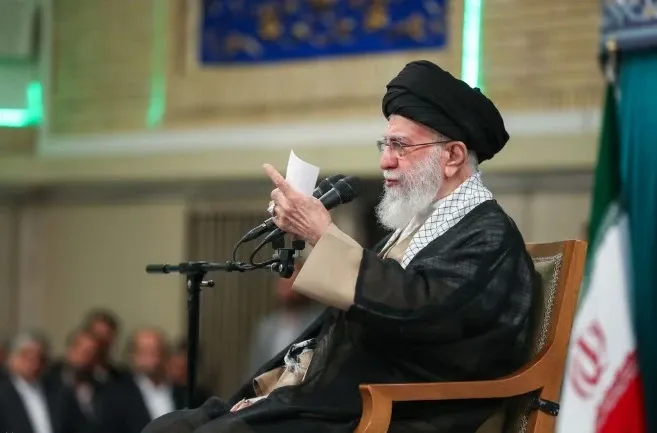
Synopsis
Key Takeaways
- Khamenei condemns Trump's peace claims as false.
- US supports violence in Gaza, according to Khamenei.
- Trump's statements escalate regional tensions.
- Iran maintains its right to a peaceful nuclear program.
- Indirect talks between Tehran and Washington continue.
Tehran, May 18 (NationPress) Iran's Supreme Leader Ali Khamenei has labeled US President Donald Trump's recent assertion about utilizing power for peace as “false”, pointing to the Trump administration's backing of the violence occurring in the Gaza Strip.
Khamenei expressed his views on Saturday during a gathering with numerous educators in Tehran, responding to Trump's statements about aiming for peace in the region during his recent tour of West Asia, as reported by footage shared on his official website.
"The recent comments from the US President during his regional visit are an embarrassment for both him and the American people," he stated at a public function in Tehran, according to IRNA, Iran's state news agency.
"Trump claimed he desires to use power for peace; he deceived. He and other US officials, alongside US administrations, have wielded power to endorse the violence in Gaza, promote war wherever possible, and to support their mercenaries," the Iranian leader asserted.
Khamenei reiterated his warnings towards Israel, referring to it as the “Zionist regime” and as “a hazardous and malignant cancerous tumor in this region” that “must and will be eliminated.”
He expressed confidence that through the resolve and efforts of regional nations, the US will indeed depart from the region, according to Xinhua news agency.
Earlier this week, Trump visited three Gulf Arab countries — Saudi Arabia, Qatar, and the United Arab Emirates— situated in West Asia.
While in Riyadh on Tuesday, Trump labeled Iran as the “most destructive force” in the Middle East and accused it of instigating instability in the region, pledging that the US would never allow Iran to develop a nuclear weapon.
Yet, Trump aims to avoid any agreement with Iran akin to the Joint Comprehensive Plan of Action (JCPOA), which was established during Barack Obama's administration and involved the European Union and China. Trump withdrew from the JCPOA in 2018 and reinstated sanctions against Tehran. The subsequent year, Iran ceased compliance with the disintegrated deal.
Iran's Foreign Minister Seyed Abbas Araghchi declared on Saturday that the nation will not relinquish its right to a peaceful nuclear initiative, yet assured good faith in negotiations with the US.
The exchange of accusations between Tehran and Washington arises as both sides have engaged in four rounds of indirect discussions regarding Tehran's nuclear program and the lifting of US sanctions in recent weeks, with mediation from Oman.

